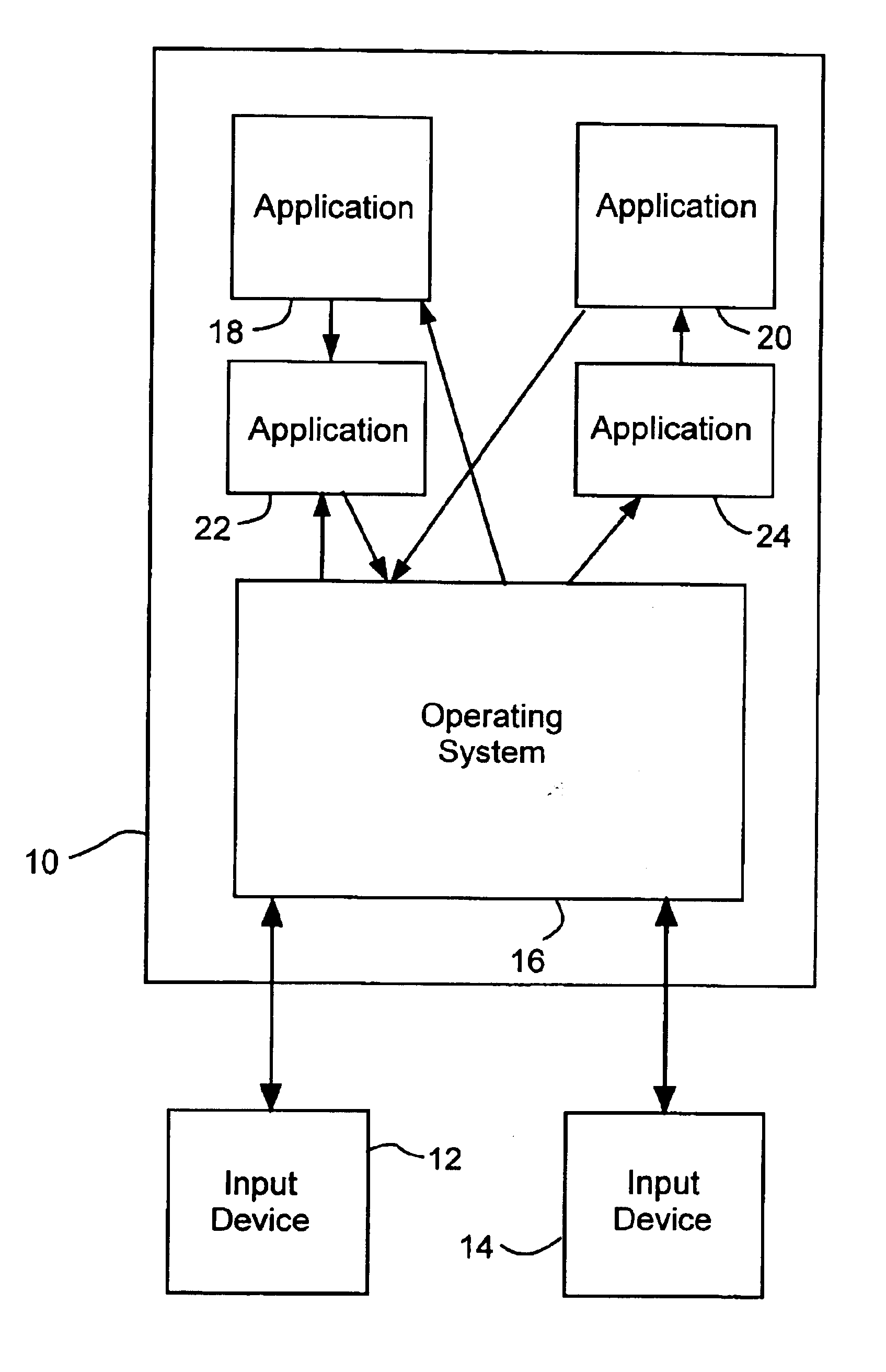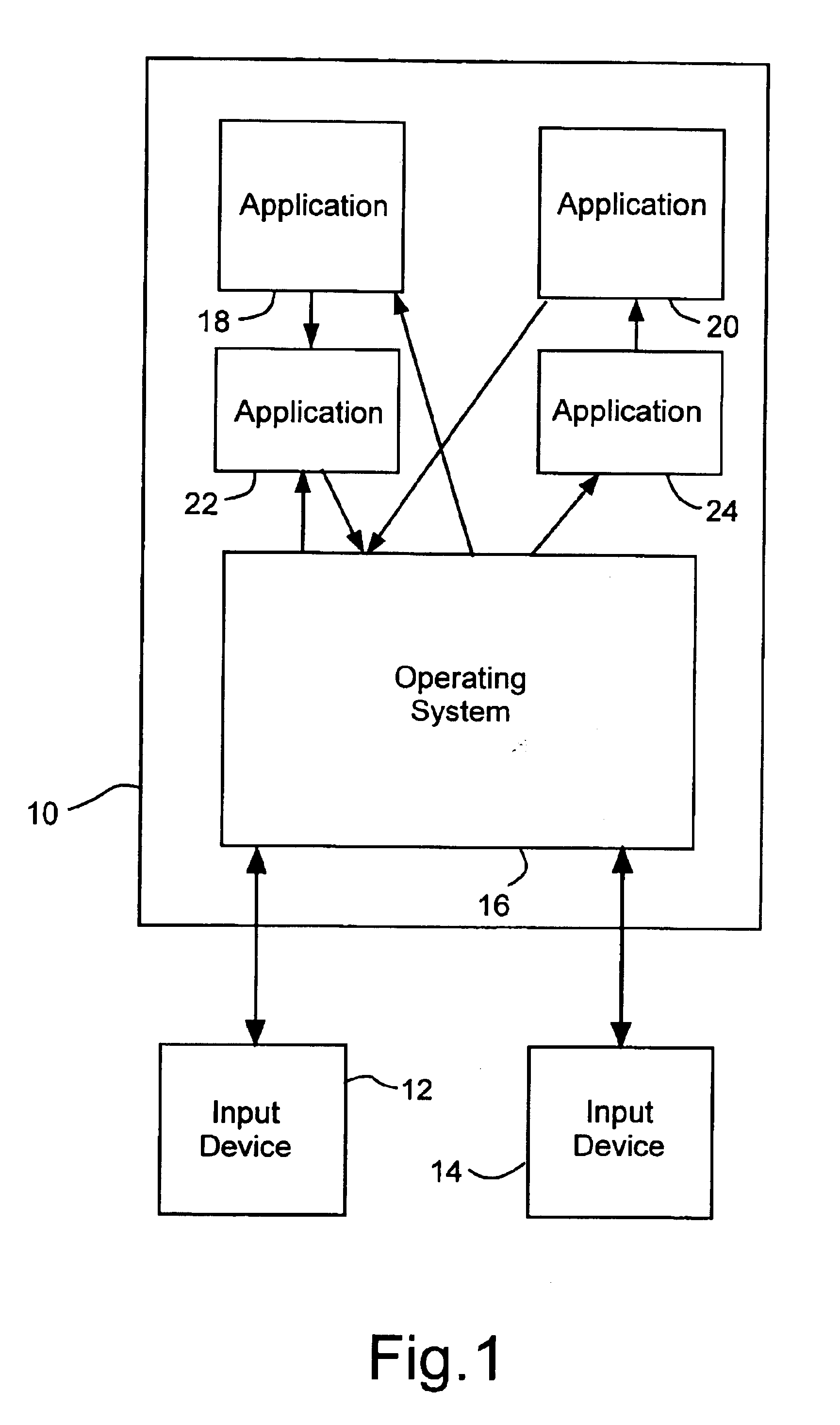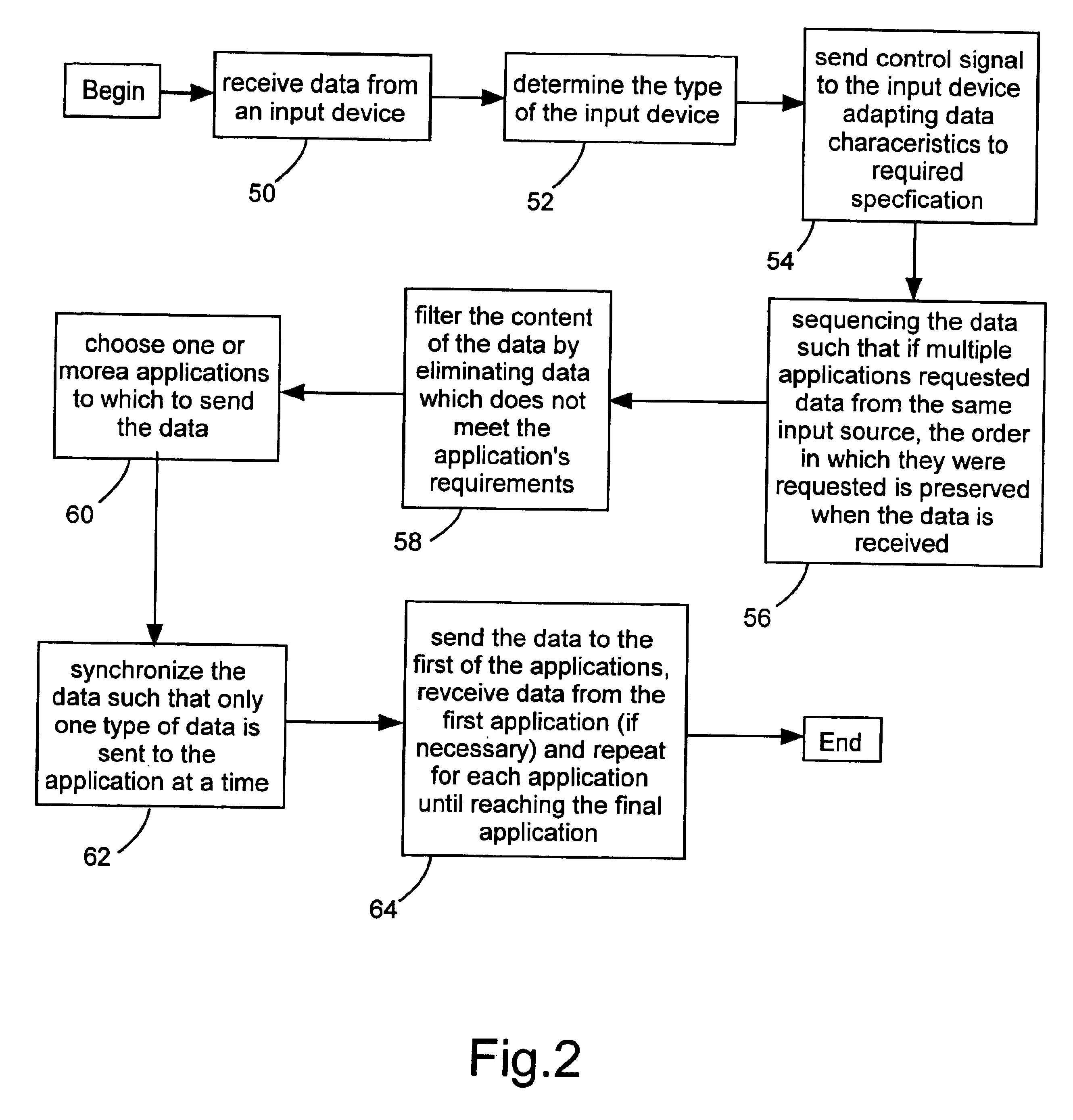Configurable operating system for control of a mobile I/O device
a mobile i/o device and operating system technology, applied in the field of interaction, can solve the problems of cumbersome process, large computer size, bulky machines that are difficult to transport, and small yet inexpensive computers developed, and achieve the effect of automatic updating quickly and easily
- Summary
- Abstract
- Description
- Claims
- Application Information
AI Technical Summary
Benefits of technology
Problems solved by technology
Method used
Image
Examples
first embodiment
[0026]FIG. 1 depicts a computer system for managing input in accordance with the present invention. Computer 10 is connected to one or more input devices 12, 14. These input devices may be of any type, including keyboards, mice, bar code symbol readers, scanners, microphones, and the like. Computer 10 contains an operating system 16 and also contains one or more applications 18, 20, 22, 24 which are designed to perform the higher level tasks in which the user is interested. For example, if the computer 10 is being used for inventory control, then the computer will likely contain some sort of inventory control software. Some of these applications 18, 20, 22, 24 may be data format translators. The data format translators are capable of converting one type of data into another and are generally used in conjunction with other applications. For example, if a scanner is being used with a word processing program, it may be necessary to convert the image data sent from the scanner into text...
second embodiment
[0042]FIG. 5 is a flow diagram illustrating the present invention. In this embodiment, the operating system acts to fulfill data requests that are sent to it from the various applications. At step 150, the operating system receives a data request from an application. At step 152, the operating system finds an input device to fulfill the data request. At step 154, the operating system sends a signal to the input device requesting data. For example, if a word processor requests text data from a scanner, the operating system may scan the system looking for a scanner. When it finds a scanner, it sends a signal to the scanner requesting data. The scanner may then be activated. This allows for the automatic handling of data requests.
[0043]The rest of the steps in the second embodiment are similar to that of the first embodiment. At step 156, the data is received from the input device. At step 158, a control signal may be sent to the input device adapting the data characteristics to the re...
third embodiment
[0046]FIG. 6 is a block diagram illustrating the present invention. In this embodiment, the data format translations are performed by hardware components rather than software applications. Input data 200 is received by operating system 202. Operating system 202 then passes input data 200 through a field reprogrammable gate array 204. The field reprogrammable gate array 204 may be used to simulate the performance of a software data format translator. This field reprogrammable gate array may be reprogrammed at any time to alter the type of translation it performs. For example, it may be programmed as an optical character recognizer in order to translate scanned image data into ASCII data, and then it may be reprogrammed as an audio to text converter in order to translate data from a microphone into ASCII data.
[0047]There are several advantages to performing the data format translations using a field reprogrammable gate array rather than software. First, hardware generally runs faster ...
PUM
 Login to View More
Login to View More Abstract
Description
Claims
Application Information
 Login to View More
Login to View More - R&D
- Intellectual Property
- Life Sciences
- Materials
- Tech Scout
- Unparalleled Data Quality
- Higher Quality Content
- 60% Fewer Hallucinations
Browse by: Latest US Patents, China's latest patents, Technical Efficacy Thesaurus, Application Domain, Technology Topic, Popular Technical Reports.
© 2025 PatSnap. All rights reserved.Legal|Privacy policy|Modern Slavery Act Transparency Statement|Sitemap|About US| Contact US: help@patsnap.com



